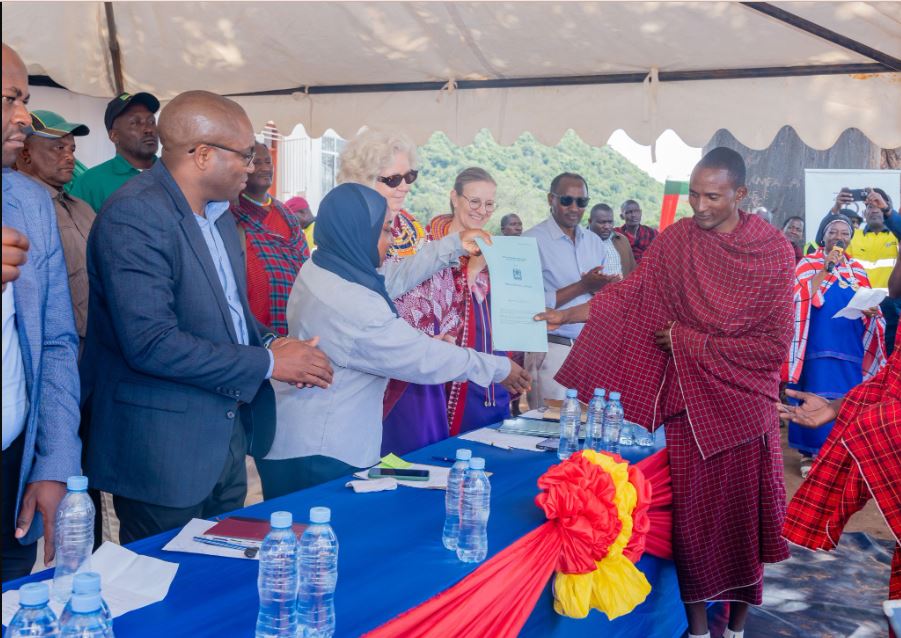
The East African Crude Oil Pipeline (EACOP) project has taken a significant step towards recognizing and safeguarding the land rights of vulnerable ethnic groups self-identifying as indigenous peoples.
In collaboration with the Akie community and Kiteto District authorities, EACOP has facilitated the handover of a Certificate of Customary Rights of Occupancy (CCRO) for the Akie Sacred Forest in Napilikunya Hamlet, Tanzania.
This milestone reflects EACOP’s ongoing commitment to respecting cultural heritage and upholding the rights of indigenous peoples in accordance with international standards.
Recognizing Indigenous Peoples’ Rights
The EACOP pipeline traverses areas inhabited by indigenous communities, including the Maasai, Akie, Taturu, and Barbaig. In line with international human rights frameworks, including the IFC Performance Standard 7 (PS7) on Indigenous Peoples, EACOP recognizes the importance of Free, Prior, and Informed Consent (FPIC) when impacting the natural resources and particularly culturally significant sites of these communities.
The Akie Sacred Forest: A Culturally Significant Site
During the land acquisition process, assessments identified that the pipeline route passes through a sacred site in Napilikunya Hamlet, Kimana Village, Kiteto District, where a baobab tree had long served as a focal point for the Akie community’s spiritual and ritual practices.
Acknowledging the importance of this site, EACOP undertook an FPIC process, ensuring meaningful engagement with the Akie community to determine a culturally appropriate way forward.
A Culturally Sensitive Solution
Following consultations, on July 6, 2022, the Akie community of Napilikunya granted their consent for EACOP activities, subject to the relocation of their sacred site to a new designated forest area in Oring’idi.
As part of its commitment to respecting and protecting indigenous cultural heritage, EACOP further supported the community’s request to obtain formal land tenure for the new sacred site, which also has a baobab tree.
Handover of the CCRO Vital for EACOP’s Success
Following the development, on April 8, 2025, EACOP facilitated the official handover of a Customary Rights of Occupancy Certificate for the 46-acre Akie Sacred Forest.
This certification provides legal recognition and protection, ensuring the long-term preservation of the Akie’s spiritual and cultural practices.
The event also featured the handover of CCROs for replacement land, distribution of birth certificates, and the inauguration of a community dispensary, constructed with compensation money.
Positive Impact on the Community
The community expressed heartfelt appreciation for the improved access road and the employment opportunities brought by the project.
It is important to note that EACOP’s commitment to preserving cultural heritage and upholding the rights of indigenous peoples is a vital step towards ensuring the pipeline project’s success and promoting sustainable development in the region.
The EACOP’s efforts to facilitate the handover of the CCRO for the Akie Sacred Forest therefore demonstrate its commitment to respecting cultural heritage and upholding the rights of indigenous peoples.
This milestone is a vital step towards ensuring the pipeline project’s success and promoting sustainable development in the region.
By prioritizing the preservation of cultural heritage and the well-being of local communities, EACOP is setting a positive example for future development projects.
